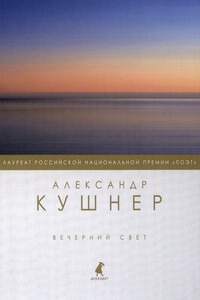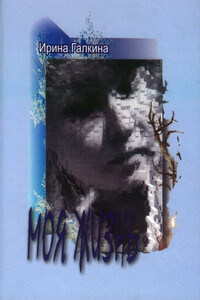A moongate in my wall: собрание стихотворений | страница 10
In 1973, her third collection, Golubaia trava (Blue Grass), dedicated to her husband, came out in San Francisco. It contained 47 poems in Russian; sixteen came from the second collection, one had already appeared in the Paris journal Vozrozhdenie (Resurrection), and another both in Vozrozhdenie and in the collection Sodruzhestvo. All are undated, and only the reader familiar with the second collection can see what is new.
Iu.V. Kruzenshtern-Peterets, a former Harbin poet and journalist, praised the poet in her review for "powerful and beautifully polished" poems, for "mystical," "Blok-like" pictures, and for Gumilev's motifs, reserving special praise for the poem "Etiud" (Etude) (poem 233). She had reservations about the key poem "Ostrova" (Islands) (poem 214): it lacked "the music inherent in the poet's works, and the precision of line," and 'suffered from rhetoric."[26] In a radio broadcast for "The Voice of America," Iu.V. Kruzenshtern-Peterets said that in Mary Vezey's poetry "one can trace some influence of the symbolists as is evident from the very title of the book. 'Blue grass' grows on an island yet unseen by man; perhaps it is a magical country, perhaps a paradise. At the same time, in Mary Vezey's poetry one can find an affinity with acmeism: dislike of formal pretentiousness, fineness of line, genuine lyricism, and, the main thing, melodiousness. Her poems sing."[27]
Another reviewer, the priest A. Pavlovich, praised "the exceptional sincerity of the poet," "the fine cast of her heart," "the high personal expectations," "the exemplar)' form of her presentation," "her simplicity" and "her serenity,"[28] while in the opinion of the emigre poet lu. Terapiano the poems "bear evidence of great experience: they are not only sincere, but also well reasoned, inwardly focused, and concentrated. In her poetry, ordinary pictures of nature, urban landscapes, and daily surroundings common to us are always related to personal feelings and are perceived both here, on earth, and on a higher plane. I… J With short broken lines and the simplest images she can give a picture filled with inner content and great concealed meaning."[29]
Emigre poet Valerii Pereleshin thought very highly of Vezey's poetry, writing to her about the poem "Как strashno odinoki my na svete" (How terribly lonely we are in this world) (poem 244): "Harbin can be proud of you as a poet. The poem is beautiful and technically perfect. 1 must say that I am waiting for your book with impatience. And 1 foresee that 'the universal scale' of ЈmigrЈ poetry will shift as soon as this future book comes out. (…) And another special praise: your rhymes are precise, taken from the living language, not composed."



